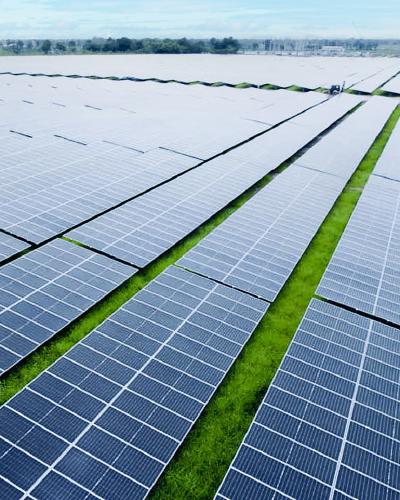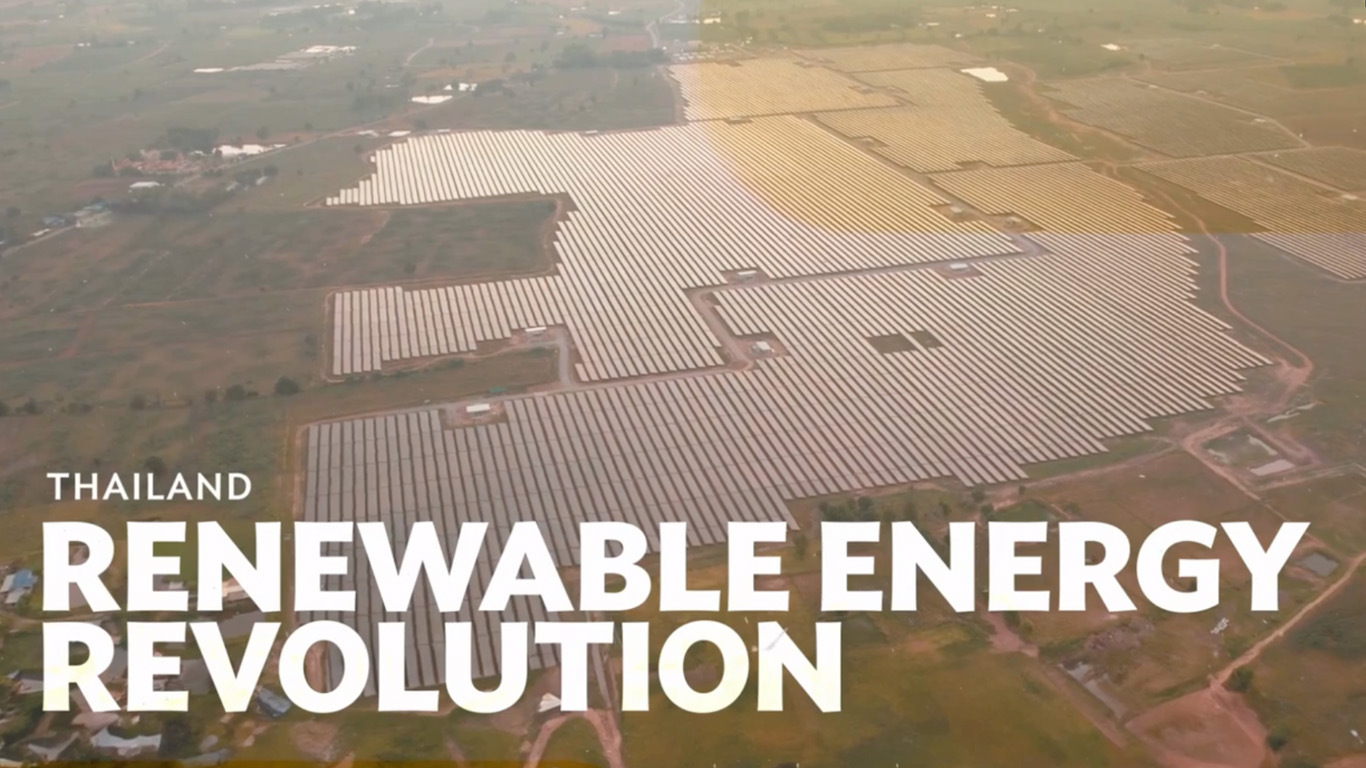Thailand-based Gulf Renewable Energy Company Limited is financing a huge portfolio of large-scale solar and energy storage projects. ADB, the Clean Technology Fund, and a host of other partners are cofinancing.
Listen to the story
push for renewable energy
Thailand has set ambitious climate targets: a 20% reduction in emissions by 2030, carbon neutrality by 2050, and net-zero emissions by 2065. However, fossil fuels dominate electricity generation at 72%, while renewable energy sources (excluding hydropower) contribute just 10%.
To accelerate the transition, Thailand’s Power Development Plan aims to add 18 gigawatts (GW) of new renewable capacity by 2037, including 10 GW of solar. A major challenge now is scaling up the limited capacity for energy storage, which is needed to manage the intermittency of renewables.
incentivizing the private sector
In 2022, Thailand’s Energy Regulatory Commission approved a feed-in-tariff (FIT) scheme that incentivizes energy companies to develop and use renewable energy sources. Under the FIT program, the government will buy up to 5 GW of renewable electricity from utility-scale solar, solar-plus-battery energy storage systems (or solar-BESS), wind, and biogas projects, with commercial operations targeted between 2024 and 1. The Gulf Development Public Company Limited (or Gulf), a long-standing ADB client, was the perfect candidate.
In 2024, ADB approved a financing package for Gulf’s subsidiary, the Gulf Renewable Energy Company Limited (GRE), to develop 12 renewable energy projects in Thailand. The package will support GRE to construct 8 solar power projects with a total capacity of 393 megawatts (MW), and 4 solar-BESS projects, with a total capacity of 256 MW and 396 MWh (megawatt-hours) of energy storage. These projects are projected to cut emissions by 605,000 tons of carbon dioxide equivalent annually.
Through the financing package, ADB and partners will bridge the funding gap during construction until GRE’s projects achieve commercial operations and can raise long-term financing for projects with later commercial operation dates.
The package also includes blended concessional finance from the Clean Technology Fund (under the Climate Investment Funds) to mitigate risks for solar–battery energy storage systems projects.
“The investment by ADB and its financing partners in Thailand will boost the country’s renewable energy capacity and support its net-zero goal by 2065. Strong partnerships are critical to achieving Thailand’s climate commitments.”

attracting partners for net zero
As the mandated lead arranger for the financing package, ADB helped catalyze $2 of cofinancing from development finance and other sources for every $1 of ADB investment. ADB mobilized parallel loans from the Asian Infrastructure Investment Bank, DEG - Deutsche Investitions- und Entwicklungsgesellschaft (German Development Finance Institution), Export-Import Bank of China, and KEXIM Global (Singapore), among others.
“The investment by ADB and its financing partners in Thailand will boost the country’s renewable energy capacity and support its net-zero goal by 2065. Strong partnerships are critical to achieving Thailand’s climate commitments,” Ben Grozier, ADB investment specialist, said.
In January 2025, Gulf announced that 5 solar power projects representing 295 MW had begun commercial operations, successfully supplying power to the grid. The remaining seven projects are expected to reach commercial operations in 2025.


